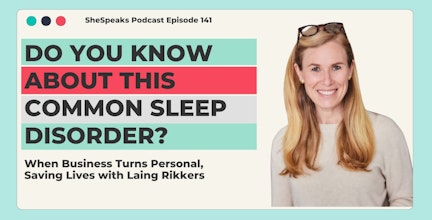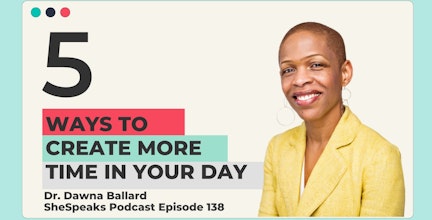Hope When Hopeless

According to the National Institute of Mental Health (NIMH) more than 19 million American adults suffer from a depressive illness. Over 12 million of these people are women (that’s twice as many women as men). Some factors that contribute to the higher depression rate in women given by the NIMH are: developmental, reproductive, hormonal, biological differences such as premenstrual syndrome, childbirth, infertility and menopause.
The Oprah Winfrey Show recently hosted a very interesting hour about the widespread issue of depressive disorders. During the show viewers heard from Sopranos actress Lorraine Bracco, supermodel Emme Aronson, and Country Music star Gary Allan. All the success, fame, and money meant nothing to these people when they were facing their own, or a loved one’s, bout with depression.
Each guest, whether dealing with the disorder themselves or a loved one’s depression, shared their experiences with the type of treatments that worked best for them or their family.
Suggested treatments for depression range from psychotherapy alone, or therapy coupled with prescribed antidepressants, holistic methods, and electroconvulsive therapy (ECT).
Prescription antidepressants have become a hot commodity in today’s world. To many people the idea of swallowing a pill and feeling better sounds like a quick fix to a major problem. However, experts urge patients choosing a prescription antidepressant to combine this treatment with regular visits to a therapist.
Some holistic approaches to depression include acupuncture, exercise, meditation, massage therapy, and an herbal remedy known as St. John’s Wort.
ECT is used on patients to induce a small seizure changing the chemical makeup of the brain that has been proven to be highly effective in treating depression. ECT is only used as a last resort on people who suffer from severe depression and have not responded to any other treatments.
The NIMH provides a list of warning signs or symptoms to look for in a person suffering from depression:
• A persistent sad mood
• Loss of interest or pleasure in activities that were once enjoyed
• Significant change in appetite or body weight; difficulty sleeping or oversleeping
• Physical slowing or agitation
• Loss of energy
• Feelings of worthlessness or inappropriate guilt
• Difficulty thinking or concentrating
• Recurrent thoughts of death or suicide
One of the most important things we know about depression is that it is very treatable, but the proper steps must be taken in order to get better.
What do you think of the current treatment being offered for depression?
Do you have a personal story about you or someone you love that has conquered depression?
If you think you or someone you love may be suffering from depression talk with your doctor about possible treatments.
Make a Comment
 by
joann1967 | Norfolk, VA
by
joann1967 | Norfolk, VAThere was a time in my life not long ago when I was going through a divorce and loosing my oldest child, that I needed to be put on medications, because I was depressed and sucicidal and felt so much void in my life .. I tried so many different kinds of medications that they just didn't help .. finally hiting rock bottom in a womans shelter...I wanted to end it but instead I cried out to Jesus Himself and PEACE came over me ...to this day I'm remarried and have 4 more children.. I'm also a Sunday school teacher living next to the Ocean which is one of my desires...There is another way ...besides taking drugs and suicide...and its prayer...Jesus is the medicine people forget to take....no matter who you are or what you've done...He can give you that peace you long for....It happened to me and it can happen to you as well...
 by
sharman421 | TALLAHASSEE, FL
by
sharman421 | TALLAHASSEE, FLIn our modern day and age,there should be absolutely no stigma for medicating depression or any other illness. There is medication for diabetes, high cholesterol, thyroid, and every other chemical imbalance, which is exactly what depression is. Whether it's the way our environment wires our brains or whether it's genetic or whether it's a societal overload shouldn't make a difference. Medication is the absolute right course to take!
 by
beachbumbeth | Danville, CA
by
beachbumbeth | Danville, CAhi ladies, i'm worried that a friend of mine is depressed. she has changed so much over the years. she seems incredibly focused on her own problems and how miserable life is. i wish i could help.... does anyone have advice on how to bring it up with her or ways to help?
 by
sarahjm222 | Goldsboro, NC
by
sarahjm222 | Goldsboro, NCHow do you know if it's depression or just a bad time in your life? After getting divorced, dealing with teenagers and generally getting older who wouldn't feel a little sad? Aside from suicidal thoughts I have had or have some or all of the symptoms at some point. But I don?t think I am clinically depressed. I often wonder how widespread this topic is. If you polled the planet, what percentage of depressed women would come from highly industrialized countries like the U.S.?
 by
KathyL | Wallingford, PA
by
KathyL | Wallingford, PAAfter dealing with depression for over 30 years, I am very happy to say I have learned to accept that is an imbalance that is in my body not my head. I have sucessfully taken different medications for many years. I consider it an illness somthing like diabetes, that can be managed with medication and a healthy lifestyle. It is something that should not carry shame. We all struggle with different problems in our lives. It is the way that you deal with these problems that really matters. We all have to play with the hand we have been dealt. Happiness has a lot to do with attitude and not loosing faith in ourselves.
 by
msbgz | milwaukee, WI
by
msbgz | milwaukee, WIIt took a year for me to admit to myself that I was depressed. I could not understand how I could be depressed as I had a great marraige, job, and homelife. As an only child I am very close to my parents and it was my mom that knew something was wrong. I thought that I was doing a good job covering it up, but she knew something was wrong. One day I just broke down and talked to her, she suggested I see our family doctor and talk to him. He listened and started me on Zoloff. I had gotten down to 90 lbs. and was a nervous wreck. That was 3 years ago. I still take Zoloff and Welbutrin too. I see a therapist once a month, (I had been seeing him weekly for a while). I can once again see how beautiful the sunset is and enjoy the birds singing. I guess what I'd like to say is that if you even think something may be wrong, don't hesitate to see a doctor. It will not go away on it's own. The hardest part is to not be ashamed to admit that you need help. I'm glad I did.








_10242023164832.jpg?max-w=432&max-h=220&fit=crop&auto=format)

_08172023152001.jpg?max-w=432&max-h=220&fit=crop&auto=format)



 (3)_04112023125932.jpg?max-w=432&max-h=220&fit=crop&auto=format)


_01252024061712.jpg?max-w=432&max-h=220&fit=crop&auto=format)


 (6)_07082023175312.jpg?max-w=432&max-h=220&fit=crop&auto=format)
 (1)_05192023144508.jpg?max-w=432&max-h=220&fit=crop&auto=format)
 (37)_05032023114523.jpg?max-w=432&max-h=220&fit=crop&auto=format)
 (36)_04272023152113.jpg?max-w=432&max-h=220&fit=crop&auto=format)